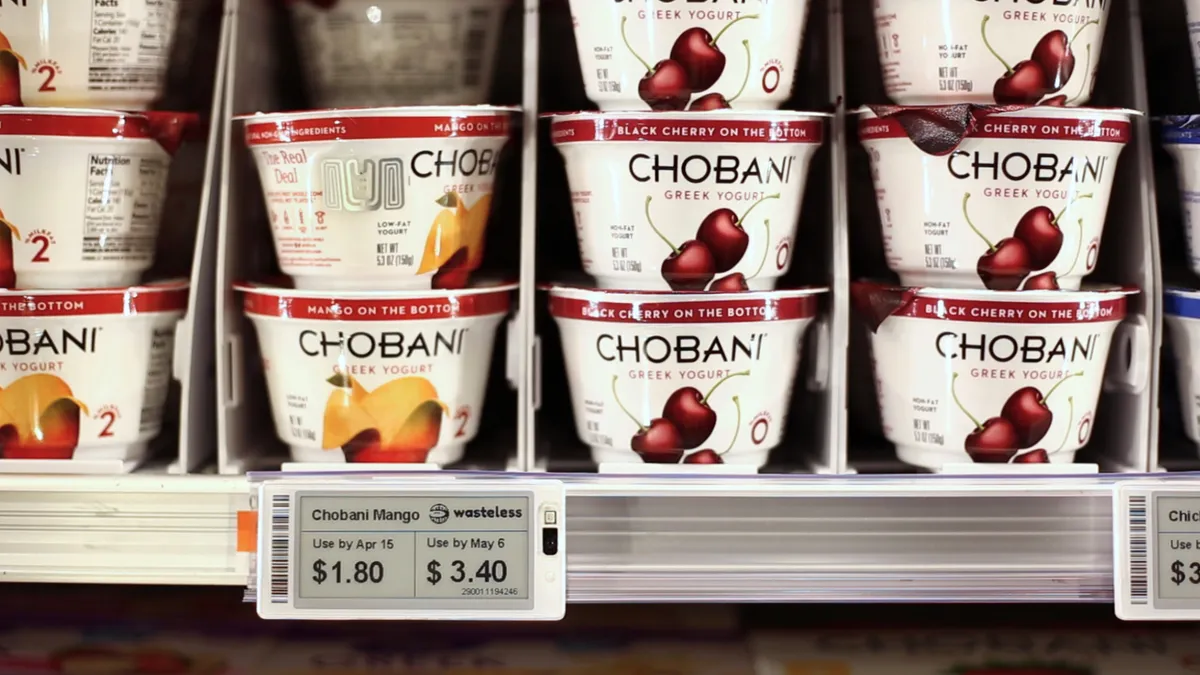Dive Brief:
- Wasteless, a startup with headquarters in Israel and New York, has introduced a new innovation dubbed the "Internet of Groceries" to reduce waste while saving customers and retailers money, according to a press statement.
- The Wasteless technology tags perishable foods in stores using an RFID chip that is intended to replace the use of the bar code. The RFID chip tracks the item's expiration date and, using software, detects the appropriate price for the item to be sold. Newer products may cost retail price, while soon-to-expire products may be discounted by a few dollars.
- While the technology aims to cut down on waste, its purpose is also to "re-capture $1B of lost grocery sales every week," according to Wasteless. The RFID chip allows for inventory manager to have real time information of what's on the shelf to combat over-stocking.
Dive Insight:
While technologies like electronic shelf labels (ESLs) — digital tags that display product information on store shelves — have slowly been adopted across grocery stores nationwide to better track inventory and control pricing, the exact technology that Wasteless has adopted has an entirely different priority: to reduce waste. A lack of clarity around date labeling terms (including "use by," "sell by," and "best if used by") has created confusion among consumers about how long a perishable product is actually edible, therefore many consumers will purposefully buy products with a later date.
Some retailers such as Whole Foods and Walmart have been urged to increase their attention toward food waste and commit to selling imperfect produce. However even if a retailer offers odd, bruised or "nearly expired" food to shoppers, getting those customers to purchase the food is a challenge. The concept of incentivizing shoppers with lower prices is promising, and doing it in a "smart" way — through RFID tagging and software solutions — allows for a more streamlined process from store to store.
For cities wishing to become more "green" and sustainable — or some that are taking it a step further and aiming to reach "zero waste" — organics diversion must be a top priority. Cities like Nashville have drafted sustainability plans that have pages dedicated to reducing food waste, and top officials know that progress cannot be made unless households, businesses, schools and retailers all put in effort.












